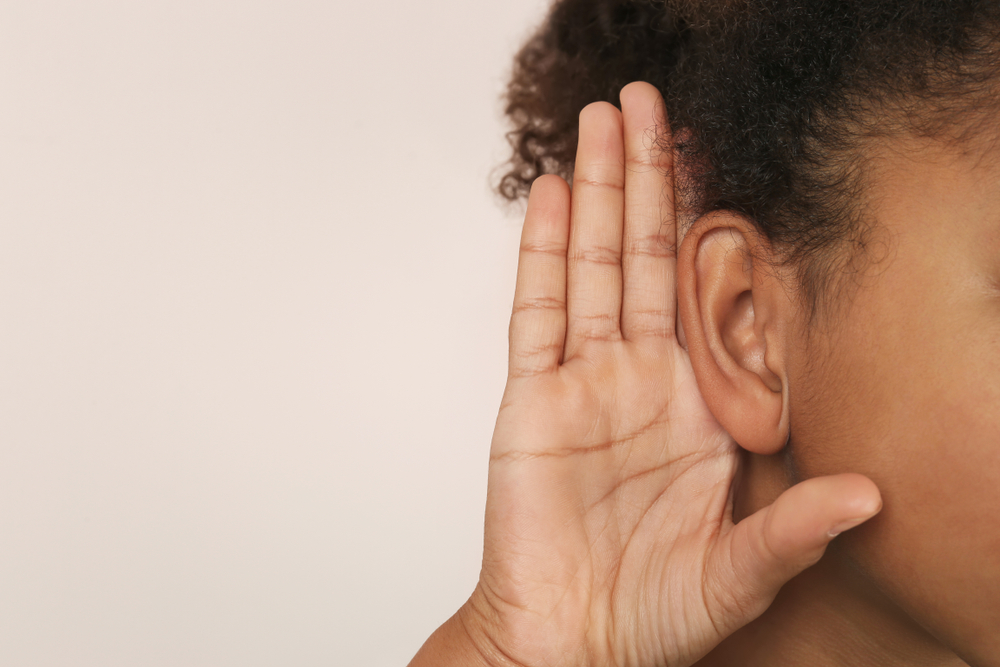That high-pitched whine, persistent buzz, or subtle whooshing sound that no one else can hear? You’re not imagining it, and you’re definitely not alone. Millions of people experience tinnitus — the perception of sound when no external sound is present. But while many just accept it as an annoying fact of life, that phantom sound might actually be your body trying to tell you something important.
Beyond the obvious noise exposure connection
Most of us have experienced temporary ringing after a loud concert or sporting event. This type of tinnitus usually resolves within a day or two as the delicate hair cells in your inner ear recover from the acoustic assault. But when your ears ring without obvious noise exposure, or when that ringing sticks around, your body might be sending you signals about something else entirely.
The fascinating truth is that your auditory system connects to almost every part of your body in ways most people never realize. When something goes wrong elsewhere, that ringing in your ears can be like a check engine light on your body’s dashboard — letting you know something needs attention, often in places you’d never connect to your ears.
The blood pressure warning you might be missing
One of the most common yet overlooked causes of persistent tinnitus is blood pressure fluctuations. When your blood pressure rises, the increased force of blood moving through the veins and arteries near your ears becomes audible. This often manifests as a pulsing or whooshing sound that matches your heartbeat.
This type of tinnitus, known as pulsatile tinnitus, essentially lets you hear your own pulse. It might get louder when you exercise, change positions, or feel stressed. While occasional pulsatile tinnitus during intense activity is normal, persistent pulsing sounds could signal hypertension that needs addressing.
Even more interesting is that sudden drops in blood pressure can also trigger tinnitus. If you notice ringing start when you stand up quickly or after taking blood pressure medication, it might be worth mentioning to your doctor. Your ears might be the first to notify you about blood pressure fluctuations before other symptoms appear.
The jaw joint surprise many dentists miss
That ringing in your ears might actually start with your teeth. The temporomandibular joint — that hinge where your jaw connects to your skull just in front of your ears — sits remarkably close to your ear structures. Problems with this joint, known as TMJ disorders, can create or worsen tinnitus in ways that surprise even healthcare professionals.
If your tinnitus changes when you move your jaw, yawn, or chew, your temporomandibular joint might be the culprit. Some people even report that their ear ringing intensifies when they clench their teeth or during stressful periods when they might unconsciously tighten their jaw muscles.
This connection explains why some people find relief from tinnitus through dental interventions like night guards, jaw exercises, or treatments for teeth grinding. Your dentist and audiologist might need to work together to address this overlooked cause of phantom sounds.
The medication link your doctor might not mention
Your medicine cabinet might be the source of that persistent buzz in your ears. Over 200 medications list tinnitus as a potential side effect, yet many healthcare providers don’t think to make this connection when patients report ear ringing.
Some of the most common culprits include certain antibiotics, cancer medications, water pills, high doses of aspirin, and some antidepressants. The mechanism varies — some drugs are directly toxic to the ear, while others affect blood flow or neural pathways involved in hearing.
What makes this particularly tricky is that tinnitus from medications doesn’t always start immediately. Sometimes it develops gradually or only appears after reaching a certain cumulative dose. If you’ve started a new prescription or changed dosages around the time your tinnitus began or worsened, this temporal relationship is worth investigating with your healthcare provider.
The surprising neck connection many miss
Your cervical spine — the portion of your backbone that runs through your neck — might seem far removed from your ears, but it actually plays a surprising role in many cases of unexplained tinnitus. The nerves and blood vessels that travel through your neck directly affect your auditory system.
Neck injuries, poor posture from hours of desk work, arthritic changes in the cervical vertebrae, or even muscle tension can disrupt normal nerve function and blood flow to your inner ear. Some people notice their tinnitus changes when they turn their head or after long periods in certain positions.
Physical therapists sometimes find that addressing neck issues reduces tinnitus symptoms in patients who’ve found no relief through traditional auditory treatments. This mind-body connection highlights how interconnected our systems truly are — your ears might be reacting to problems originating in your spine, not in your auditory system at all.
The blood sugar rollercoaster effect
If your tinnitus seems to fluctuate throughout the day, especially in relation to meals, your glucose levels might be the hidden variable. Both high blood sugar and rapid drops in blood sugar can trigger or worsen tinnitus, creating a frustrating pattern that many people never connect to their diet.
Diabetes and prediabetes can damage the tiny blood vessels and nerves in your inner ear, leading to increased tinnitus. But even in people without diagnosed blood sugar problems, significant fluctuations from skipping meals or consuming high-sugar foods can temporarily affect your hearing and trigger phantom sounds.
This connection explains why some people notice their tinnitus improves when they adopt diets that stabilize blood sugar — like Mediterranean or low-carb eating patterns. Your ears might be one of the first places to register discontent with blood sugar imbalances, serving as an early warning system for metabolic issues.
The stress-tinnitus cycle that feeds itself
Perhaps the most complex relationship exists between tinnitus and your body’s stress response. When you’re under stress, your body releases hormones that can affect blood flow, muscle tension, and neural activity throughout your body — including your auditory system.
This creates a frustrating cycle where stress worsens tinnitus, the increased tinnitus causes more distress, and that distress triggers more stress hormones. Breaking this loop often requires addressing both the physical and psychological aspects simultaneously.
Your tinnitus might be telling you that your stress management systems are overwhelmed. While relaxation techniques won’t cure physically-based tinnitus, they can significantly reduce its intensity and impact. Your ears might be reflecting your mental state more accurately than you realize.
The inner ear fluid imbalance you can’t see
Inside your ear lies a delicate system of fluid-filled chambers that help maintain both hearing and balance. When the volume or composition of these fluids changes, tinnitus often follows. This explains why conditions like Ménière’s disease, which affects inner ear fluid, almost always include tinnitus as a symptom.
But even without a diagnosed inner ear disorder, subtle fluid imbalances can create tinnitus. Changes in your salt intake, hormonal fluctuations, and even your hydration status can temporarily affect these delicate fluids.
Some people notice their tinnitus worsens around specific points in their menstrual cycle, during pregnancy, or when they’re dehydrated. Others find relief by monitoring sodium intake or staying well-hydrated. These patterns suggest your tinnitus might sometimes be a status report on your body’s fluid balance.
When to take your ringing ears seriously
While tinnitus itself isn’t typically dangerous, it can sometimes signal conditions that require prompt attention. Seek immediate medical care if your tinnitus:
Appears suddenly and at high intensity, especially in one ear Coincides with dizziness, hearing loss, or facial weakness Comes with a fever or severe headache Develops after a head injury Pulses in perfect rhythm with your heartbeat
For less urgent but persistent tinnitus, keep track of patterns. When does it worsen? What seems to trigger it? Does it change with different activities or positions? This information can help healthcare providers identify underlying causes that might not be immediately obvious.
Remember that tinnitus often acts as your body’s alarm system, potentially alerting you to issues ranging from blood pressure problems to medication effects to stress overload. Rather than just trying to ignore that ringing, buzzing or whooshing, consider it a message worth decoding. Your ears might be telling you something important about your health that deserves your attention.















